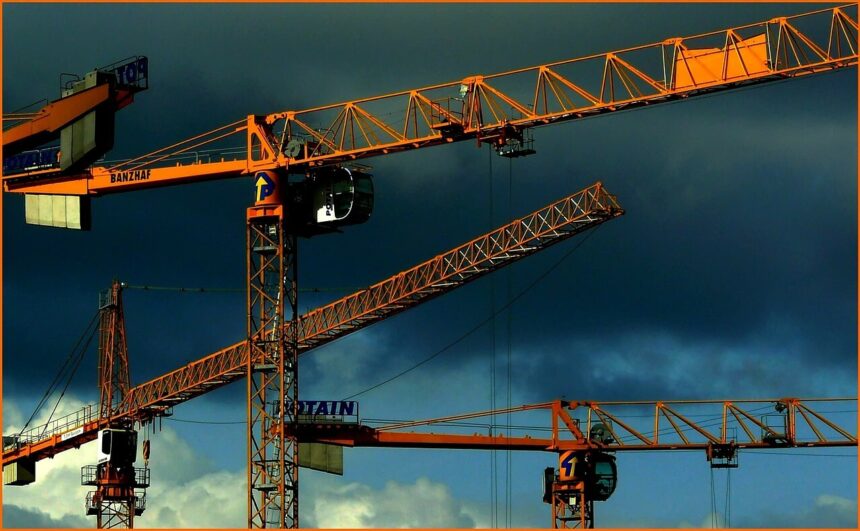If you’re looking for a brief overview of the leading causes of underdevelopment in Africa, this article is perfect for you.
The following blog post will highlight the most important reasons African countries have not developed. It is an informative article that can help you understand more about this topic.
It will also analyze how Africans can solve these problems and what needs to happen next.
After reading this article, you will determine which factors have contributed to a lack of development in some African countries and how they can overcome these problems. Finally, a list of valuable resources at the end if you want to read more on this subject or learn how to contribute!
1. Corruption
One of the biggest problems in Africa today is corruption. Corruption can take many forms, and it might be challenging to understand what counts as corruption and what doesn’t.
In this context, I mean the abuse of a position of power by public officials for private interests or personal gain. This happens when people entrusted with power use their authority for their benefit.
When this happens, the government and people become disorganized and lose motivation to develop.
The problem is that impoverished African governments can’t invest enough money into health care, education, infrastructure, etc. They need to use their already scarce resources on corruption, such as paying public officials salaries or funding more projects.
This problem is widespread in the continent today, which causes underdevelopment in Africa.
2. Poor government policies
Many African governments have implemented policies that prevent the continent from developing.
These governments have often been responsible for economic crises and political instability. Many Governments either fail or refuse to sustainably solve domestic problems, such as poverty, unemployment, and hunger.
This is because African countries often lack the resources to govern themselves effectively. There are many civil servants in some African countries where the state is involved in every aspect of society. The result is terrible management or even incompetence because corruption hinders good governance.
3. Unemployment
It is estimated that 60% of the African population is between 15 and 24 years old, which creates a ‘youth bulge.’
This means there are many young people in Africa today. These youth are not employed or have no work experience. This causes severe social problems because young people become frustrated when they do not develop their lives.
This frustration grows when they see other people succeeding without working hard, which means enormous pressure on some individuals to succeed in Africa today.
4. Insufficient infrastructure
Most African countries have insufficient infrastructure. This refers to roads, railways, and airports that are not adequate to allow trade or tourism. It’s also about having an electricity grid that allows the population to use appliances like washing machines and computers.
The lack of infrastructure in Africa today is a significant obstacle to development because it limits people’s ability to do business across borders. This means there are fewer opportunities for work, which leads to unemployment and poverty throughout the continent.
5. High Levels of Illiteracy
Although many African countries have compulsory primary education, this does not apply to secondary and tertiary education. Many parents do not send their children to school because they need them to work and contribute to the economy.
Many African countries also have problems with teachers who are not adequately trained or paid enough money. Students do not receive proper lessons and can’t get a good education.
Illiteracy is common in Africa today, limiting the development of people throughout the continent.
6. Unfavourable business conditions
Many African businesses operate under trying conditions. On the one hand, many countries have a limited stock of natural resources and business opportunities for investors. On the other side, African companies face high taxes and high-interest rates, poor infrastructure, and insufficient access to financial services such as loans and credit cards.
7. Insufficient Skilled Labour
Another cause of underdevelopment in Africa today is the lack of skilled workers. Most African countries do not have enough qualified teachers, doctors, engineers, etc., so many Africans cannot offer their services in these parts of society.
There are often too few job opportunities for well-qualified professionals to make a living in Africa today, so they must look elsewhere. This shortage also means that education and health care in Africa is often unsatisfactory.
8. Poor Public Project Supervision
It is often said that building a road in Africa is easy but challenging to maintain. Poor supervision means many African countries have roads, railways, and other infrastructures that are not maintained or abandoned.
This leads to bad conditions for transport throughout the continent, limiting trade development between African countries.
9. Lack of Political will
This is one of the significant causes of underdevelopment in Africa today. Many African governments are not fully committed to using the resources available to improve living conditions throughout the continent.
This means that much-needed international aid money intended for development is misappropriated and used dubiously, or there may be a lack of investment in necessary infrastructure.
In addition, politicians sometimes misuse public funds when they are holding office. This often leads to a lack of transparency and undermines good governance, which is an essential factor in development on the continent today.
10. Excessive Regulation
Many African countries have laws and regulations that make it hard for businesses to succeed (or even do business) throughout the continent. While these measures are designed to improve safety and the standard of living, they often have the opposite effect because they are poorly implemented or too strict.
The good news is that African leaders are aware of the problems in Africa today. They are gradually making improvements to make it easier for African countries to develop and become more competitive worldwide.
How Can Africans Solve These Problems?
Underdevelopment in Africa will only end when African leaders do more to improve living conditions by working together and making political progress.
Worldwide, several organizations support African development. These organizations provide training for children in Africa, help create job opportunities, improve road safety, encourage good governance, and much more.
In addition to supporting these organizations, which help Africa today, you can support African countries by making an effort to buy and use products and services from the continent (or from Africans living in other countries).
This will make it easier for these businesses to improve their operations and provide more opportunities. It’s also an excellent way to show your support for African development!
Africans need to be more involved in improving living conditions throughout the continent. They should make an effort to support good governance, create job opportunities, and ensure that they earn enough money for their families by working hard or starting their own businesses.
These are all ways that Africans can help fight underdevelopment in Africa today. These steps will also lead to more opportunities for Africans throughout the continent with time.
This is why it’s so important that African countries move forward with political and economic development initiatives and work together to improve the standard of living in Africa.
Read Also:







